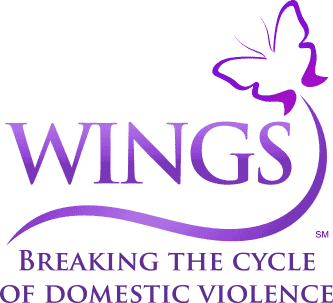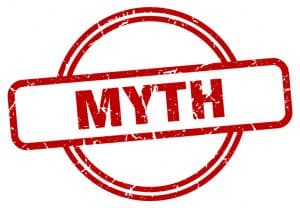6 Myths about Domestic Violence
- Posted by Sarah Swiston
- On October 18, 2022
- children survivors dv, Domestic Violence, domestic violence agency, Domestic Violence Awareness Month, Domestic Violence Myths, domestic violence organization, DV agency, dv survivors, family services, Housing Programs, October Domestic Violence Awareness, WINGS, WINGS Program
October is Domestic Violence Awareness month. With domestic violence continually on the rise, WINGS shares six myths about domestic violence.
Research has shown that major events such as health pandemics and recessions result in an increase in domestic violence, even after the immediate crisis has ended. Contacts to the Illinois Domestic Violence Hotline remain high. According to a 2021 Data Report from the Network Advocating Against Domestic Violence, 32,363 contacts were made to the Illinois Domestic Violence hotline in 2021. This represents a 9% increase over 2020.
Unfortunately, despite how large the issue is, many people may have misconceptions about domestic violence. Read below regarding common myths.
Myth #1: Domestic violence is a private matter between family members.
Domestic violence does not discriminate. It happens to people of every race, ethnicity, culture, religion, gender, and socioeconomic and educational level. It can happen to your family, friends, coworkers, and those you interact with in your extended network.
Domestic violence affects more than just the immediate family. By keeping domestic violence a secret, children and other household members are negatively impacted.
There is also an economic cost. Victims of intimate partner violence lose a total of eight million days of paid work each year, the equivalent of 32,000 full-time jobs.
According to the National Coalition Against Domestic Violence (NCADV):
- 1 in 3 women and 1 in 4 men have experienced some form of physical violence by an intimate partner.
- 1 in 5 women and 1 in 12 men have experienced sexual violence by an intimate partner in their lifetime.
- 1 in 10 women and 1 in 50 men have experienced stalking by an intimate partner during their lifetime.
Domestic violence is a crime and if kept private, the abuse is likely to continue. It is time to break the silence and make domestic violence the public matter that it is.
Myth #2: It is not abuse if the partner is not being hit.
Domestic violence is a deliberate pattern of abusive behaviors used by one person to maintain power and control over another in the context of a household, intimate or familial relationship. It tends to escalate over time.
Physical abuse is just one of the tactics used by abusers and often an abuser will use more than one type of abuse on their partner. Tactics used by abusers include:
- Physical Abuse
- Sexual Abuse
- Financial Abuse/Financial Exploitation
- Stalking/Cyberstalking
- Spiritual
- Psychological Abuse/Emotional Abuse
- Threats
- Intimidation
- Isolation
- Using Privilege
- Using Children and Family Members
- Targeting Vulnerabilities
Physical domestic violence is an illegal act in the United States and considered a crime. Survivors of domestic violence often experience higher rates of posttraumatic stress disorder, depression, self-harm, suicidality, anxiety disorders and substance abuse
According to the National Coalition Against Domestic Violence (NCADV):
- 7 out of 10 psychologically abused women display symptoms of PTSD and/or depression.
- 60.8% of female stalking victims and 43.5% of men reported being stalked by a current or former intimate partner.
- Between 14% and 25% of women are sexually assaulted by intimate partners during their relationship.
Myth #3: Domestic violence occurs because abusers have trouble controlling their anger… Survivors provoke their partner’s violence.
Abusers use violence to gain and maintain power and control in a relationship. Many act intentionally and with forethought. Abusers choose whom they abuse and do not attack because they lose control of their emotions. One example of this is an abuser will selectively abuse their partner, but not their boss at work.
There is no excuse for resorting to violence in a relationship. Whatever challenges exist in the relationship, domestic violence is never an acceptable response.
Myth #4: Children are not aware or affected by the domestic violence in their household.
1 in 15 children are exposed to domestic violence each year, and 90% of these children are eyewitnesses to the violence, according to the National Coalition Against Domestic Violence (NCADV).
Unfortunately, whether children are exposed through hearing or sensing it, or they see it, they are at a much higher risk for physical, emotional, and behavioral problems. Even fetuses in the womb of someone being abused can be negatively impacted. Brain imaging in infants shows that brain development can be reduced, inflammation can be increased and the way the brain circuits work together can be impacted.
Upon exposure to domestic violence, children can experience anxiety, sleeplessness, lack of concentration, aggression, and nightmares. They may feel scared, powerless, and worthless. The NCADV states that 1 in 3 children that witnesses domestic violence will suffer from child abuse, compounding the above trauma.
Long-term, children that witness domestic violence are:
- three times more likely than their peers to participate in violent behavior,
- likely to be in abusive intimate partner relationships, as either the victim or abuser, when older, and
- prone to health issues in adulthood such as obesity, cancer, heart disease, depression, and substance abuse.
Through WINGS Children and Family Services program, children learn safety planning, what healthy relationships are, and that the violence that occurred is not their fault. Research shows that with these interventions, children are far less likely to continue a legacy of abuse or accept it in their own relationships.
In Fiscal Year 2022, 8,369 hours of counseling and children’s services were provided to WINGS clients. As a result of these support services, families realize their potential and break the intergenerational cycle of domestic violence.
Myth #5: Pregnancy will stop domestic violence.
Domestic violence may begin and often escalates during a pregnancy. Homicide is the single most frequent cause of maternal death during pregnancy and in the first year after giving birth.
An estimated 20% of pregnant women experience domestic violence during their pregnancy. This makes domestic violence more common than gestational diabetes or preeclampsia.
Myth #6: If the violence were so bad, they would just leave.
Victims stay in abusive relationships for many reasons. Fear and the inability to find another safe place to stay can be factors. Nearly all domestic violence involves financial abuse, which causes concerns about how they will live on their own or provide for children.
The most dangerous time for a survivor is when they are leaving. Abusers may threaten the victim, children, or pets when they find out the survivor is considering leaving.
Click here to view the ways abusers will seek to hold power and control over their partner.
WINGS is available to help survivors.
The agency’s comprehensive approach ranges from emergency Safe Houses, Transitional Housing, Community-Based Services including mentorship and hospital partnerships and comprehensive children’s services. Click here to learn more.
Domestic Violence 24-Hr Hotline: 847.221.5680
To learn more about Counseling and/or Mentoring, call WINGS Intake Line: (847) 519-7828
The Intake Line is answered by trained crisis workers Monday-Friday, 9am-5pm. If you should call outside of these hours, please leave a message and a worker will return your call the next business day.
Learn ways you can make a difference for Domestic Violence Survivors: http://wingsprogram.com/ways-to-help/






0 Comments